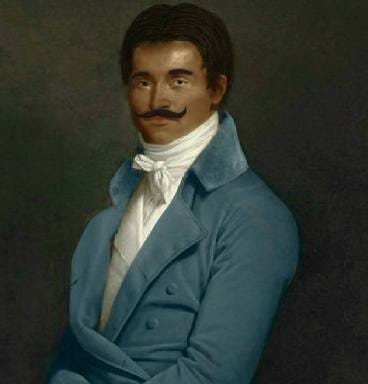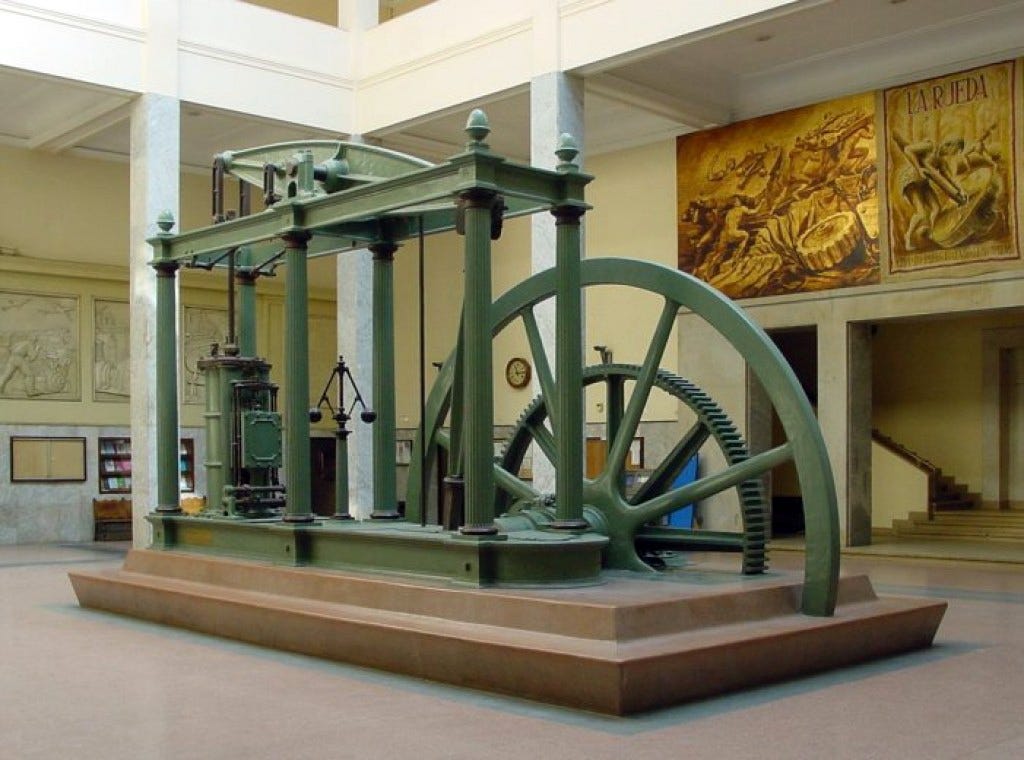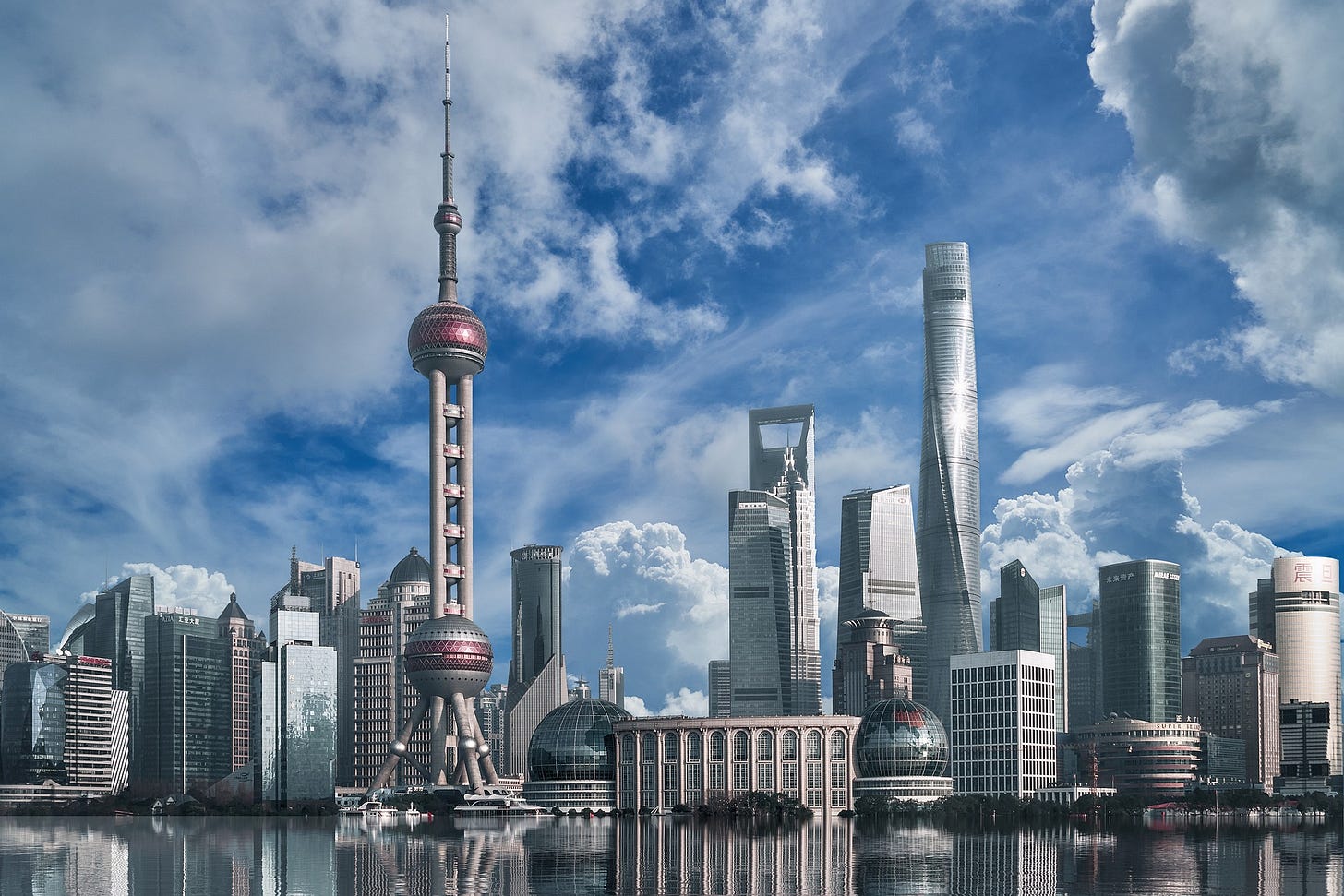The dinghies of Columbus that he crammed his crew into to somehow make it over the Atlantic would have been dwarfed by the 14th century ships of the Chinese admiral Zheng He. Gunpowder, as we know, was invented by the Chinese, who had already reached Africa (among many other places) a millennium earlier. How come, then, that it was Western Europe that colonized the world?
Source: https://www.researchgate.net/figure/Dimensions-of-Zheng-Hes-treasure-ship-120-m-and-Columbuss-Santa-Maria-31-m_fig1_265422740
In our materialistic society, we tend to put material, economic, or technological reasons first. We usually assume that it was the more “advanced” state (i.e. more efficient killing instruments) of the Europeans that made colonization possible. In the case of Africa and Asia, this will indeed be the case in the 19th century, but the Americas started to come under European domination in the 16th century, when they did not have a significant advantage in weaponry. To understand the reasons, let us look at a less studied aspect, the psychological factors.
The Chinese empire, although it possessed more advanced naval technology than the Europeans, at that time simply did not have any motivation to conquer the world. It may sound strange today, but they felt fine staying home. Even though they had long traded with distant countries and even collected some taxes, the successor to the emperor who had sent Zheng to explore saw no point in senseless wandering to distant lands. For a long time, there were no conquering gallions sailing from the Yellow Sea.
The kingdoms of the Iberian peninsula, on the other hand, had, for centuries, been committed to fighting and converting Muslims. When the reconquista, the retaking of the peninsula, finally achieved its aim, they suddenly found themselves without a program. It was a bit like smoking, playing computer games, workaholism or any compulsive habit that is hard to quit. For eight hundred years we have fought, burned at the stake, converted or banished infidels. We have reached the sea. Now what to do? The astronomy and mathematics taken from Andalusia provided knowledge of navigation. To the east stretched the Turkish Empire, blocking the Silk Road. Let's head for the ocean, bypass Africa, sail around the globe, get to India, bring back treasures and, by the way, convert everyone we encounter!
The Spanish Inquisition by Monty Python. Source: Eduardo Unda-Sanzana, https://commons.wikimedia.org/w/index.php?curid=73509544
Along with religious fanaticism and greed, Europe also possessed a kind of peculiar emotional attitude. Chomsky writes somewhere that the Europeans were able to triumph because the extent of their violence shocked the inhabitants of other continents. Of the peoples of the world, some had lived in peace, others conducted wars, but no one was prepared for this magnitude of aggression. Large-scale conquest was also facilitated by the emerging financial structures. Not only did a king provide funds for a voyage of discovery, there were also investors ready to finance the exploitation of new territories. Their money could be used to equip fleets and recruit men, for which, of course, they expected a handsome profit. Gold, precious stones, slaves, later raw materials and agricultural goods.
While the Portuguese slowly inched their way south along the coasts of Africa, Columbus set out west and immediately stumbled upon the Americas, where two great empires collapsed in the blink of an eye. We were taught that the Aztecs were defeated by a few hundred Spanish conquistadors because the superstitious creatures were frightened of horses and white gods. According to Wikipedia, at the Battle of Otumba, “Spanish conquerors and Tlaxcalan allies” defeated the Aztec army of 200,000. This is a bit like saying that in World War II. the Czech legion defeated Germany. Oh yeah, there were some Soviet and American and British auxiliaries, too...
It might be more accurate to say that the Aztec empire, fuelled by internal strife, was defeated by their recently conquered vassals, the Tlaxcals, with the help of the bearded extraterrestrials, and the cunning Cortés stepped into the power gap. In Peru, Pizarro similarly stirred up conquered peoples while exploiting the war between Inca rulers. The Spaniards were talented manipulators, one might say politicians; they even adopted some of the Inca nobility into their ranks. The Moctezuma family, which still exists today, is a direct descendant of Cortés and an Inca princess, while Dionisio Inca Yupanqui, a Spanish nobleman, fought for the rights of the Indians in the Spanish Empire at a later age.
Source: De Tomas8024, https://commons.wikimedia.org/w/index.php?curid=65583143
In the bringing of native America to its knees old world diseases probably played a decisive role. Various epidemics have long been devastating the constantly warring peoples of Eurasia and Africa, who gradually developed a degree of natural immunity. Large movements of people over long periods of time carried pathogens to distant lands giving time for populations to adapt. People also lived in close proximity of many kinds of domestic mammals, from which new pathogens could emerge — as we are told in one of the explanations for the origin of Covid. The relatively isolated population of the New World had virtually no immunity to the new microorganisms.
Old World diseases did not just spread by themselves; they were an early example of biological warfare. Indian prisoners were housed with smallpox patients, then mercifully released before the end of their incubation period. Some estimates put the population loss of America at 90%. Long-established trade routes carried the diseases surprisingly far, from South America that was conquered early all the way to the North. English settlers in many parts of North America found empty fields and abandoned villages.
Although Europeans had already been present in coastal areas of Asia and Africa, until the 19th century this mostly took the form of trading colonies established with the consent of the locals. Before the Industrial Revolution, European military technology was not significantly better than that of other regions. Sure, they had popping, cumbersome-to-load muskets and even some cannons, but the few warriors carried by small ships could not defeat organized peoples. A great change was only brought by the industrial revolution.
A steam engine. Source: Nicolás Pérez, CC BY-SA 3.0, https://commons.wikimedia.org/w/index.php?curid=195711
The conquest of the Americas likely contributed to this remarkable, (although, for the ecology of the planet not too positive) event in several ways. One was the momentum itself: The Europeans had by then not only retaken Iberia, but had also conquered two huge continents, further reinforcing their still prevailing, false sense of invincibility and superiority. Instead of striving for a state of equilibrium, they became addicted to innovation and development — a way of life still dominant today. The flow of gold and other raw materials from the Americas also directly supported large-scale investment. Even the new food crops, namely maize and potatoes, could have contributed to Europe's population growth and its relative weight in the world. Potatoes, for example, played a major role in the tripling of Ireland's population between 1700 and 1850.
With the industrial revolution, some countries in Western Europe now had a real technological advantage, allowing them to conquer Asia and Africa. The latter had already been ravaged by rampant slave trade, with its population decimated and its states weakened, and the discovery of quinine allowed conquerors access to the malaria-ridden interior. This is how, in the 19th century, nearly the whole planet came to be occupied by a few belligerent European countries.
Map of the world in 1914. Most American colonies have become independent. China is nominally independent but has been carved up into European and Japanese spheres of influence. Source: Andrew0921, https://commons.wikimedia.org/w/index.php?curid=11022316
I believe that a more nuanced understanding of the past, of the underlying factors, can help us shape our future for the better. One learning could be that, while we tend to focus on external factors, it is often our own internal structures that are most important. Europeans had an ideology they were blindly devoted to. This was not employed for the “good” of the whole (and thus ultimately of themselves), but it could have been.
As for China, it has learned from the past — it will never again be humiliated by the white devils. It has given up its isolation, and, working like a colony of ants, is buying up the world, extending its influence step by step with a well thought-out, long-term strategy. While not being an enthusiastic supporter of the American empire that has dominated our planet for the last decades, I’m not convinced that we will be better off when the modern Chinese will call the shots.
In fact, all of humanity could learn from the past, albeit in a slightly different way. We could, for example, begin to create and project thought patterns that serve long-term survival and balance. We have an old obsession with war. Let's slash the infidels, the wicked, let’s defeat poverty, autism and dandruff! War stirs up immense emotions. Adventure, strategy, heroism, triumph, camaraderie, conquest! Down with the usurper! Follow the flag!
It's a very exciting concept, but there are too many widows, orphans and minefields left in its wake. And fighting takes a lot of resources away from meaningful things. Right now China is laughing at the expense of Americans and Russians who are shooting each other (or each other’s equipment and sidekicks) to pieces.
There are other interesting things than war, one of them being curiosity. What happens when we put ourselves in others' shoes in order to understand and feel what drives them, what is important to them? I’m suggesting a form of empathy. What makes others safe, what makes them willing to cooperate? By stepping into each other's shoes, not only do we learn a great deal, but amazing things become possible, such as agreements acceptable to all.
Source: Meg Kannan, Unsplash
This may seem naive and utopian, but what’s the alternative? There are people, social creatures on all sides. Accomodating everyone’s most basic needs could be a way out of the trap that was created by some old manias.








